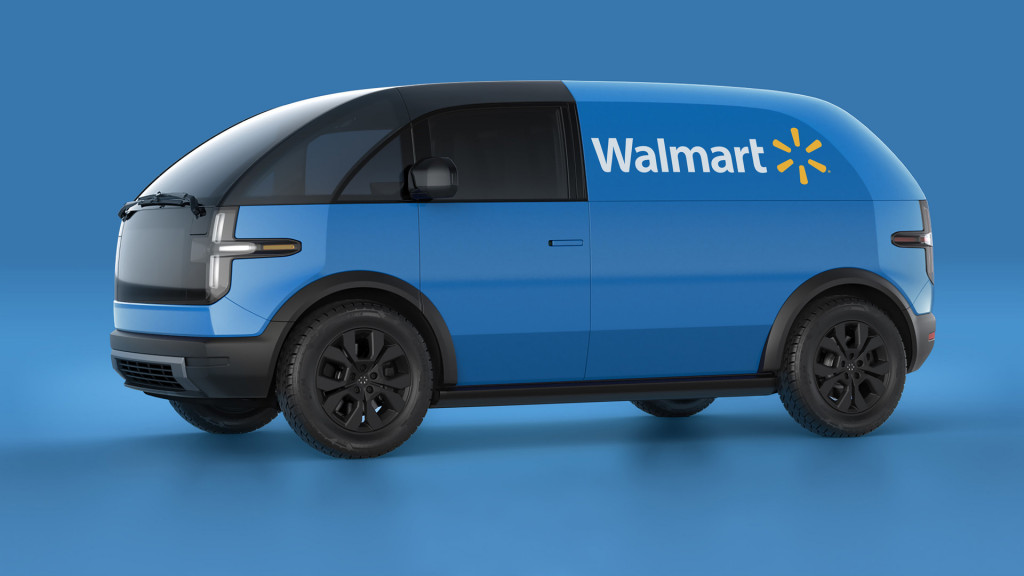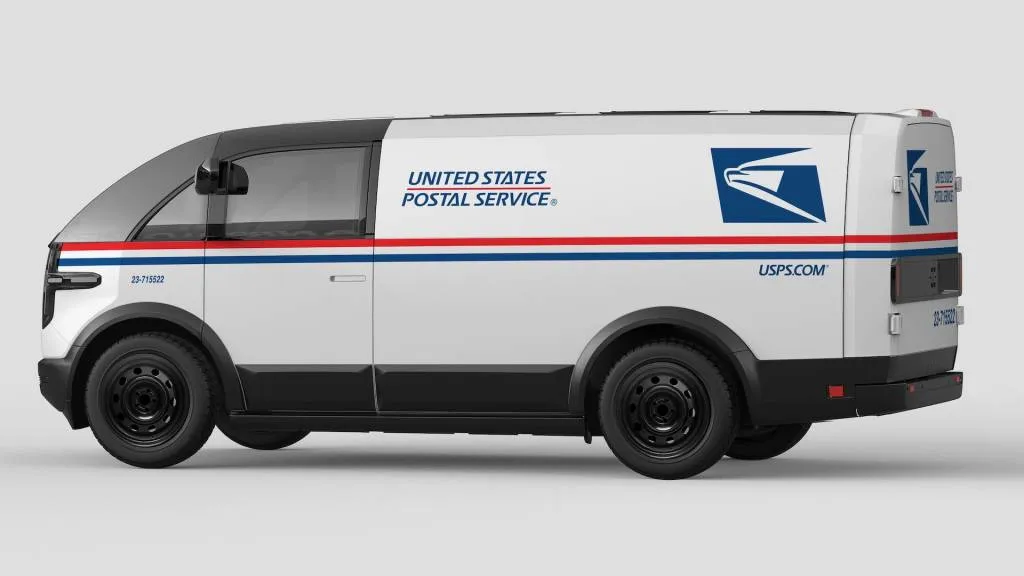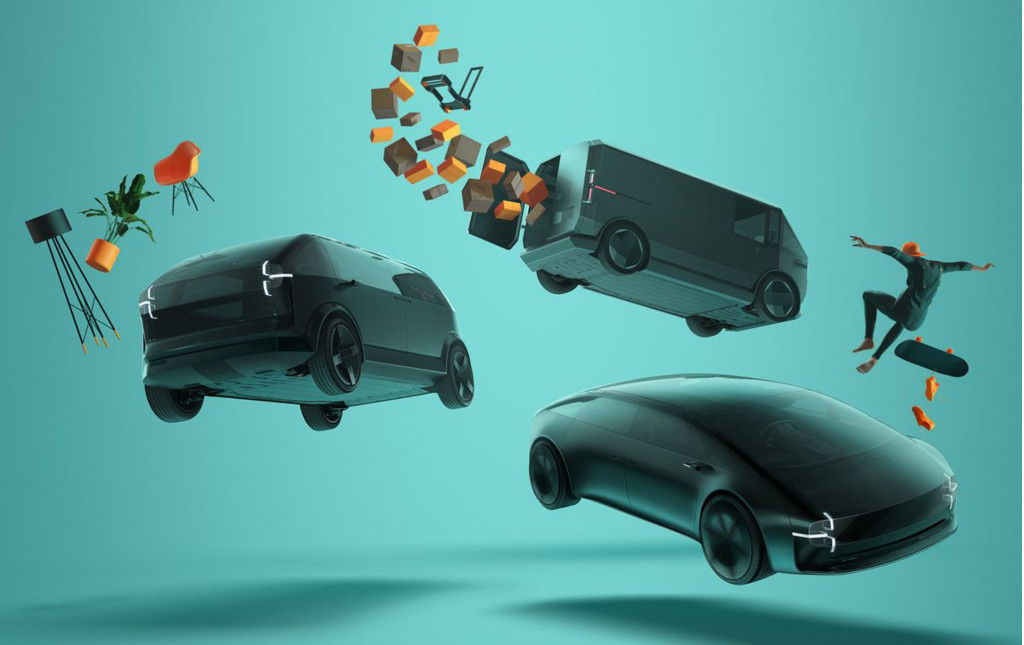[ad_1]
The U.S. EV startup Canoo earlier this week announced that it had acquired “a substantial portion of the advanced manufacturing assets” formerly owned by the U.K. startup Arrival for “pennies on the dollar.”
The assets acquired by Canoo from the failed startup include robots, control equipment, and dynamic vehicle testing equipment, it said.
“These assets enable the company to increase its general assembly and vehicle cabin build capacity and provide redundancy in the event of equipment malfunction, thereby increasing efficiency and productivity,” Canoo explained.
Canoo had already acquired what remained of Arrival’s South Carolina facility in January, although what remained at the U.K. startup’s core operation was a significant acquisition, taking up more than 20 shipping containers.

Canoo Lifestyle Delivery Vehicle with Walmart logo
Canoo claims that it has an “order book” summing more than $3 billion, and more than 18,000 “committed orders” including electric van orders from Walmart. The startup has struggled in recent months, resorting to a reverse stock split to avoid being delisted from the NASDAQ exchange.
Its business plan has greatly evolved over many years. Canoo started in 2017 as Evelozcity and was led by several former BMW executives. In 2019, it changed its name and confirmed a focus on California and a subscription EV business. In recent years, it’s moved to Arkansas, shifted its market primarily to commercial vehicles, and planned manufacturing in Oklahoma, where this equipment is headed.

USPS Canoo LDV 190 van
Arrival’s initial focus was the commercial vehicles that Canoo has gradually shifted its business plan toward. Its original product was set to be a series of stylish electric delivery vans, including an initial 10,000-vehicle order from UPS spanning Europe and North America. UPS also took a minority stake in Arrival, in a deal that sounded like a smaller version of Amazon’s early commitment to Rivian.
It also aimed to be a lean operation. With a modularized platform and core components set to be built internally, and a “microfactory” approach, Arrival aimed for U.S. production of electric buses initially, with its signature electric vans to be made in the U.K. at first.

Teaser for Canoo electric cars
Canoo previously had eyes on an entire lineup of EVs, including a passenger car. Arrival was also working on the Arrival Car, a space-efficient, tall-roof car that was the basis of a strategic relationship with Uber, but in the early signs of trouble in 2022 Arrival dropped the electric car project and electric bus plans.
[ad_2]
Source link




